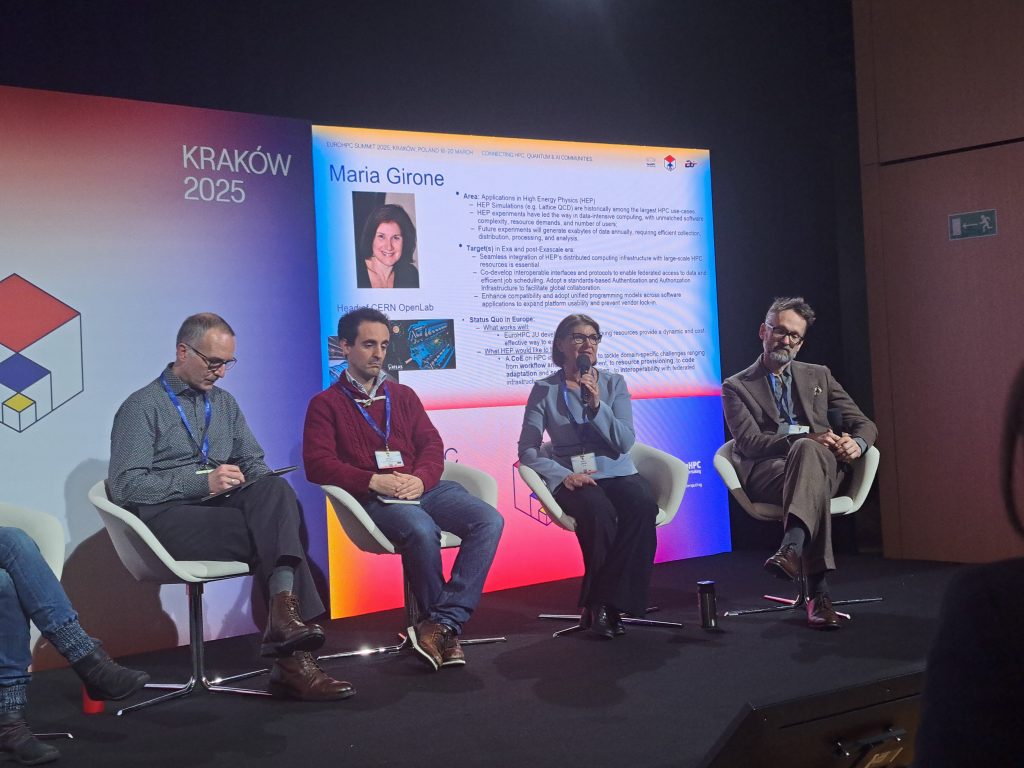Bridging HPC and HEP: CERN openlab at EuroHPC Summit 2025

At the EuroHPC Summit 2025 in Kraków, Poland, Maria Girone, Head of CERN openlab, actively participated in a panel discussion on high-performance computing (HPC) titled “Boosting the Applications Ecosystem in the Future.” Dr. Girone highlighted the significant role HPC has played in advancing extreme-scale Lattice QCD theory applications. Additionally, she discussed the pioneering contributions of High Energy Physics (HEP) experiments in data-intensive computing.
With upcoming experiments expected to generate exabytes of data annually, Dr. Girone emphasized the urgent need for efficient data handling, from initial collection to in-depth analysis. She identified key priorities for the Exascale and post-Exascale era, including integrating HEP’s distributed computing with large-scale HPC resources, developing interoperable interfaces for federated data access and job scheduling, adopting standardized authentication frameworks to enable global collaboration, and promoting unified programming models to enhance compatibility and usability.
In her remarks, Dr. Girone stressed the importance of collaboration, highlighting that access to EuroHPC JU’s development and benchmarking resources offers a dynamic and cost-effective pathway for the scientific community to explore and adopt emerging technologies. She stated, “By combining the expertise in HPC and HEP with access to cutting-edge technologies, we are fostering a collaborative effort to build the advanced computing infrastructure essential for addressing future challenges.” In addition to her participation at the summit as a representative from HEP, Dr. Girone serves as Vice-Chair of the EuroHPC Joint Undertaking’s Users Forum Coordination Group.
Coinciding with the summit, a white paper titled “Strategy for HPC Integration in WLCG/HEP” was published. This document outlines strategies for integrating HPC into the Worldwide LHC Computing Grid (WLCG) and broader HEP research efforts. Authored by 20 researchers from global institutions, the white paper underscores the necessity of aligning HPC advancements with the computational requirements anticipated from future HEP experiments at the High-Luminosity LHC. The document results from ongoing collaborative discussions organized with help from Dr. Girone, with the latest meeting held at CERN in January 2025.
These collective engagements at the EuroHPC Summit underscore CERN openlab’s dedication to fostering collaborations that drive innovation and integration of high-performance computing within high-energy physics, ultimately pushing the boundaries of scientific discovery and technological advancement.